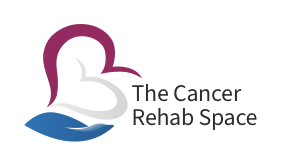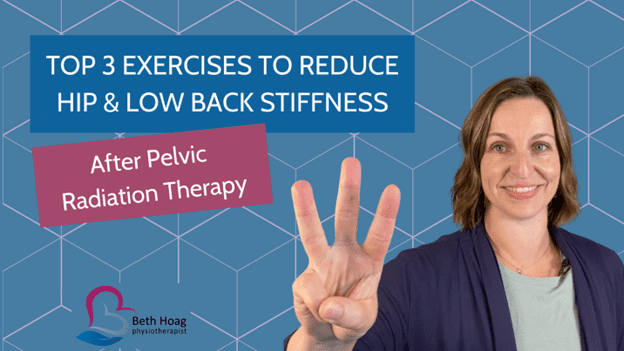Changes to cognitive (mental) function are actually quite common amongst people who have undergone cancer treatment. Often termed “brain fog”, it is present in up to 75% of people during treatment and 35% of people up to a decade post-treatment (1). These mental changes can impact your ability to participate in social, work, school and family activities.
Chemo Fog or Brain Fog?
The term “chemo fog” or “chemo brain” was the term most commonly used in the past. However, as the science has begun to show that these mental changes may not be due to chemotherapy alone, different terms are now being used. The more formal term you may read about is “Cancer-Related Cognitive Impairment”, but I tend to use the simpler term “brain fog.”
What Causes Brain Fog?
The simple answer is that we still aren’t sure exactly what causes brain fog. The current evidence is showing that it is likely due to a combination of factors (2, 3):
- Direct effects of chemotherapy
- Indirect effects of chemotherapy
- i.e. On other parts of the body that then impact your brain
- Changes in hormone levels
- i.e. A reduction in estrogen and/or testosterone
- Psychosocial factors
- e.g. sleep, fatigue levels, post-traumatic stress disorder from cancer, etc.
- Genetic factors
Ways to Improve Your Brain Fog: What the Research is Showing
At the moment, there is no known cure for brain fog. This includes no specific drugs that have been shown to prevent and treat brain fog (2). Thankfully, however, there is a building amount of research showing the effectiveness of several treatment strategies (2, 4):
1. Physical Exercise
Remember my last blog post about Movement is Medicine: Move your Body? Yes, well I now have yet another reason to explain why exercise really is important! Research has shown that regular cardiovascular exercise, yoga, qigong, and tai chi can all improve brain problems related to cancer.
2. Meditation
Meditation is a form of awareness training; learning to observe your thoughts and feelings without judgement. It is NOT about having a perfectly calm mind, like many of my clients think. Interestingly, meditation has also been found to improve brain problems related to cancer.
3. Cognitive Training: “Brain Exercises”
This is a group of techniques aimed at improving memory, attention and concentration. Similar to physical exercise that strengthens your body, cognitive training is like brain exercises to “strengthen your brain.” I like to call this “moving your brain.”
What is interesting is that the degree of learning is improved when the training tasks are more challenging and done more frequently. In other words, you need to find the task challenging and be doing it frequently for it to be helpful.
The goals of cognition training can be both restorative and compensatory.
Restorative:
These techniques follow the concepts of neuroplasticity; the brain can change with practice. Think “what fires together, wires together.” In other words, by practicing certain tasks you can improve. Examples include doing crossword puzzles or Sudoku.
Compensatory:
These techniques are essentially new coping strategies as a way to “work with” your current memory abilities. For example, writing things down in a calendar, using alarms to remind you of an appointment time, or writing down a “to do” list.
4. Cognitive Rehabilitation
Cognitive rehabilitation is a more formal and tailored approach to retraining your brain. It can be an individualized or group program and is often offered by a multidisciplinary team in a variety of different settings.
5. Diet
“Diet plays an important role in the brain structure and function”(2). Studies have shown that a diet rich in fruits and vegetables, long chain, omega-3 fatty acids, and low sugar content are all important for brain health.

5 Ways You Can Start Improving your Brain Fog Today
- Move Your Body:
- 2-5x/week for 30+ minutes for at least 8 weeks
- Cardiovascular exercise at a moderate level (or higher) And/or Yoga, QiGong or Tai Chi
- Move Your Mind:
- Meditation
- There is no one way to meditate. I often recommend the HeadSpace App (note: they have a free trial) as it is science-based and very educational. A few months ago, I also created a free Walking with Awareness Video that you can use at any time.
- Brain Puzzles
- There’s no limit to what you can do here. Consider doing crossword puzzles, Sudoku, brain teasers, or word games.
- Meditation
- Get 8+ hrs a sleep per night
- Develop a regular sleep routine and aim to go to bed at the same time every night.
- Eat a balanced diet
- Consider consulting a nutritionist or dietician if you need more guidance with what a “balanced diet” means.
- Find healthy ways to manage your stress
- Living a “stress-free” life is unrealistic, but finding ways to manage your stress is important for brain health. Consider doing something that brings you joy every day (hint: it doesn’t’ have to be complicated!) Exercise and meditation can also be helpful (Hint: Go back to tips #1 and #2 above for more detail!)
- Janelsins, M. C., Kesler, S. R., Ahles, T. A., & Morrow, G. R. (2014). Prevalence, mechanisms, and management of cancer-related cognitive impairment. International review of psychiatry (Abingdon, England), 26(1), 102–113. https://doi.org/10.3109/09540261.2013.864260
- Lv, L., Mao, S., Dong, H., Hu, P., & Dong, R. (2020). Pathogenesis, Assessments, and Management of Chemotherapy-Related Cognitive Impairment (CRCI): An Updated Literature Review. Journal of oncology, 2020, 3942439. https://doi.org/10.1155/2020/3942439
- Mandelblatt, J. S., Hurria, A., McDonald, B. C., Saykin, A. J., Stern, R. A., VanMeter, J. W., McGuckin, M., Traina, T., Denduluri, N., Turner, S., Howard, D., Jacobsen, P. B., Ahles, T., & Thinking and Living With Cancer Study (2013). Cognitive effects of cancer and its treatments at the intersection of aging: what do we know; what do we need to know?. Seminars in oncology, 40(6), 709–725.
- Zeng, Y., Dong, J., Huang, M., Zhang, J. E., Zhang, X., Xie, M., & Wefel, J. S. (2020). Nonpharmacological interventions for cancer-related cognitive impairment in adult cancer patients: A network meta-analysis. International journal of nursing studies, 104, 103514.
Disclaimer – These blogs are for general information purposes only. Medical information changes daily, so information contained within these blogs may become outdated over time. In addition, please be aware that the information contained in these blogs is not intended as a substitute for medical advice or treatment and you should always consult a licensed health care professional for advice specific to your treatment or condition. Any reliance you place on this information is therefore strictly at your own risk.




